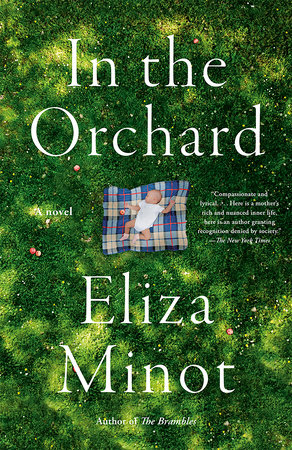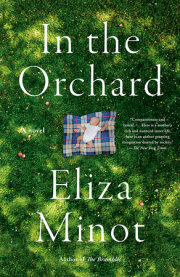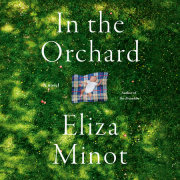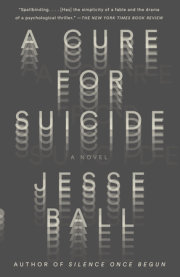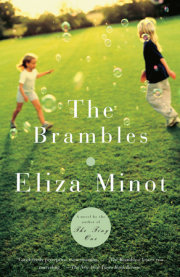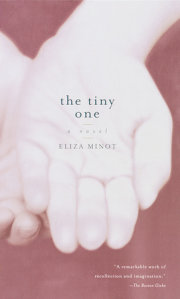A fluffed-up, blown-out wave of positive feeling is welling up inside of the young mother Maisie Moore, ballooning, perhaps too quickly for comfort, but expanding in a good and promising feeling nonetheless. She is teetering with hopefulness. She is tensely optimistic. It is glee. It is thrilling. She lets out a wiggled scream in a spasm of relief.
Oh, what luxury! What absolute bliss and heavenly releae to live freely and without a mortgage! No credit card debt! No student loans or used-up equity lines! No faceless, hulking bank slurking around every turn of thought, methodically withdrawing from her accounts so stealthily, so regularly! Was it really possible? Was it really happening? No more uneasy insomniac nights when her nervous stomach felt as though her guts had been scrambled frothy like eggs! No more wondering if she was possibly causing a disease in herself, always returning, in lulled moments, to the same raw cavernous worry corner of her mind, of her abdomen! Alas, who in the world ever wants to talk about money unless there is plenty of money to talk about in the first place?
Oh, debt was so unsexy! Debt was such a drag!
A banker man with a fresh crew cut sits before Maisie and her husband, Neil. The banker is like a mortgage broker in a 1950s Hollywood movie, as clean and as smiling as a toothpaste ad. The walls of his office are white. His desk is entirely orderly. He brandishes a silver pen that twinkles in the sunlight. He smiles at Maisie and Neil, then neatly gathers the crisp papers that they’ve just signed and consolidates them into a compact white pile that resembles a gift box that might contain a folded men’s dress shirt. The man nods to them reassuringly. He gestures with his arm as though he’s waving a magic wand, motioning that they are free to go. Their debt—credit cards, student loans, mortgage, overdrafts, home equity lines—is as vanished as though it never was. Overbearing and invincible yesterday, it is miraculously invisible today!
Outside, Maisie and Neil stand holding hands on the sidewalk under a blue sky. Small green-and-white-striped awnings gleam over the windows of the tidy house across the street. The green grass is mowed in a plaid diamond pattern. The trees are healthy, tall, and idyllic, and their leaves flip flap playfully in the wind. The air is soft—neither hot, nor cold. The space is tranquil and vacant. A woman wearing a yellow poodle skirt is walking a standard white poodle down the sidewalk.
“Wait a second,” Maisie says to herself.
The woman with the poodle clicks smartly toward them. Maisie senses her own extraordinary focus on the poodle; everything else has fallen away except for this white dog with its perverse pink bow in its cloud of silvery hair. It is close enough that Maisie pats it. Goopy discharge from the dog’s wet raisin eyes is purpling its face. As it pants, Maisie can see that its pale uppergums are speckled with brown spots, like a ripe banana.
It clamps onto her calf. Quickly, it tugs and snarls. A portion of Maisie’s calf pulls away and scatters as though it’s made of stuffing that pulls apart like cotton candy.
“What the . . . ,” Maisie says, puzzled, detached, imagining it’s all some joke since she’s not as frightened as she should be.
“Whoa whoa whoa . . . ,” she says in the same tone she uses to calm her kids when one of their arguments turns shrill. The stuffing from her leg is strewn all over the sidewalk. Here’s some, she says to herself, carefully gathering it. It is light pink and fluffy like insulation. Here’s some more. . . .
She looks around for Neil. She is in a different place entirely. The bank is no longer there. There is a barn with stables? Mammalian nostrils appear at the stables’ edges, sniffing through cracks. Are they horses? Maybe pigs?
The dog is back, tugging at her shirt, growling a little more wildly when, with the adrenaline-fueled style of a penalty kick from the soccer days of her girlhood, Maisie hops forward on her left foot, winds up with her right, and boots the dog into a large and elegant arc that sends it sailing skyward. The poodle’s whinnies swirl away as it soars, a kaleidoscope of snarls and whimpers in Maisie’s ears that mewl into the guttural cat cries of her newborn in the flouncy bassinet next to her bed.
Maisie rises robotically in the dark of her bedroom to lift the baby. Buzzing cries and silent screams vibrate the small body as though it is motorized. Even in the dark, Maisie can sense and feel with her hands that the receiving blanket’s swaddle has come undone. Baby Esme’s scrawny, primate arms flail about in spasmic jerks. One of her tiny hands abruptly knots onto Maisie’s hair and yanks it.
“Oh my goodness,” Maisie finds herself saying gently, patting her baby’s back.
“Goodness me,” she says softly at the ruckus.
“Goodness gracious,” she says, all words that Maisie probably never uttered until she had her first baby, Xavier, nearly nine years ago. Other such words included potty, sippy, play-date, binky, cross (as in angry), Pull-Up (as in diaper), and, altogether: Use your words.
Maisie sniffs Esme’s tiny rear end to check her diaper—it is still weightless and clean!—then tightly reswaddles her charge with the efficiency of an experienced mother, unfazed by the escalating screams. She tucks the swaddled football of baby into the crook of her neck, like an old-fashioned phone receiver, as she sits back down in bed and arranges, with her free hands, the pillows in their usual configuration for plugging the infant onto her nipple. When all is tucked and flattened, smoothed and forcefully secure, she places the screamer on her shoulder to gently calm her so that she doesn’t nurse while hysterical and swallow air to make gas bubbles and misery.
“Shhh,” says Maisie, patting the diminutive taut torso in rhythmic thumps, “shhh shhh shhh.” Gradually, Esme’s tight muscled body grows more lumpish and relaxed, and Maisie can feel, in miniature, on her shoulder, against her ear, against her collarbone, a new life go from high alert to quiet exhale.
Maisie’s own body feels like it’s exhaling as she, with her own cheek, smooths the cashmere-soft newborn hair that smells like beach stones that have baked in the sun. The heavenly weight of the baby, the living warm loaf of her with her green hay-bale smell, is almost too much for Maisie to bear. She breathes in a deep gulp of baby-green straw, sunlight, the faint sweetness and prick of lilies of the valley, of cucumbers. She inhales it all in a gulp of air as though she’s about to go underwater. She restrains herself from snorting in hungrily the sweetness of her infant’s not-yet-there neck, like a pig looking for truffles in damp brown leaves.
Esme’s warm skull is as delicate as an ostrich egg, as perfectly and magnificently shaped. With her ear cupped up against Esme’s shoulder, Esme’s neck, Maisie can hear her baby’s breathing magnified, like breath close to a microphone. The same breathing machination—so small now!—that will carry Esme through her entire life! This tiny body, thinks Maisie. As she listens, Maisie imagines that her baby’s insides resemble the inside of the bedroom that they’re in: contained and calm, dark blue because of the night, with indistinguishable corners but somehow spacious. The room, and maybe the space inside Esme, possesses the diorama stillness of a woodland night scene, or maybe a meadow with winking fireflies. Maisie considers for a moment what doctors must imagine when they listen to breathing and heartbeats through a stethoscope. Wild sounds?Textbook murmurs? Do they see the guts all crammed in there, dark and oily, winding around like a tangle of snakes? Or do they imagine it like a poem, vital and strange?
At the doctor, when she heard the baby’s heartbeat for the first time, it galloped like a quiet siren: WowWowWowWowWow.
Copyright © 2023 by Eliza Minot. All rights reserved. No part of this excerpt may be reproduced or reprinted without permission in writing from the publisher.

